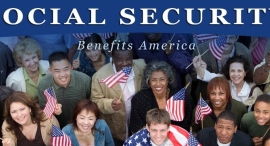
Philadelphia is waiting on a Supreme Court Decision decision on the case Fulton v. City of Philadelphia, No. 19-123, which argues over city policy that prohibits discrimination based on sexual orientation.
The policy was the reason why Philadelphia cut ties with Catholic Social Services (CSS), a Roman Catholic foster agency that refused to allow same-sex couples to adopt children. CSS fought back with the help of legal experts, which argued the city violated the foster agency's First Amendment religious rights.
According to CNBC, the arrival of the Supreme Court's decision is timely given that June is Pride Month. LGBT advocates are hopeful that the dispute that was launched in November can resolve in providing them rights to adopt. But religious groups are dissenting and for good reason.
The upcoming Supreme Court decision will not only affect over 6,000 children in Philadelphia foster care, but also other governmental organizations that hire private contractors for public services. If the court rules for CSS, it means that taxpayer-funded public foster care services will be at risk for discrimination against LGBT couples. If the court rules otherwise, Philadelphia will be placed in a position where they violate the faith-based agencies' religious rights.
Religion News argues that the Supreme Court decision will indeed affect religious minorities in the United States, as it "turns the free exercise clause into a license to discriminate could lead to more discrimination against religious minorities."
CSS argued that the nondiscrimination policy of the state is "not neutral." In fact, it claims that no same-sex couple seeking adoption had visited them between its opening in 1917 and the start of the case in 2018. But if any same-sex couple had, they would endorse the same-sex couple to a foster agency that could accommodate them.
However, "As a Catholic agency, CSS cannot provide written endorsements for same-sex couples which contradict its religious teachings on marriage," Mark Rienzi, an attorney who represents the agency, said in a filing.
"The mayor, city council, Department of Human Services, and other city officials have targeted CSS and attempted to coerce it into changing its religious practices in order to make such endorsements," Rienzi argued.
Lori Windham, another lawyer representing the agency, told Time that Philadelphia in fact "considers factors like race and disability when it's making foster care placements, something that's prohibited by the law." So why cannot the religious foster agency do the same for same-sex foster parents?
"The question is whether Philadelphia can exclude longtime foster moms and the religious agency they partner with because of their religious beliefs," Windham explained. "We're talking about trying to take away an important support for foster parents and their children."
Some who have focused on the needs of the children exemplify what the city of Philadelphia would've wanted as a result of this case.
Bethany Christian Services, for example, announced in March this year that it would open its doors to same-sex couples who wish to adopt, despite having not allowed this practice since it started as a Christian adoption agency in 1951.
The service's CEO Chris Palusky argued that they were caught between "caring for hurting children who need a safe family, or close our foster care program completely because we disagree with government requirements" and ultimately decided not to abandon the children in need. The adoption agency made the announcement in light of the controversial Equality Act.
It's important to note, however, that most of the Fulton v. City of Philadelphia case has focused on its potential impacts on the LGBTQ community, not on the effects it might have to the religious freedoms of faith-based institutions.
Rienzi, speaking of the case, argued that Philadelphia is shutting down CSS's foster care services merely "because the City disagrees with the Archdiocese about marriage."
As mentioned, CSS doesn't make written endorsements if couples looking to foster children go against what the agency believes when it comes to marriage. These beliefs, Rienzi said, "haven't prevented anyone from fostering."
"It is no mystery why Philadelphia has punished CSS," Rienzi continued. "Having worked in harmony with CSS for decades, Philadelphia is shutting down CSS because, it said, it wants to prohibit 'discrimination that occurs under the guise of religious freedom.' But well aware that it can't target religious exercise, Philadelphia started looking for a rationale to justify this predetermined result. "






















